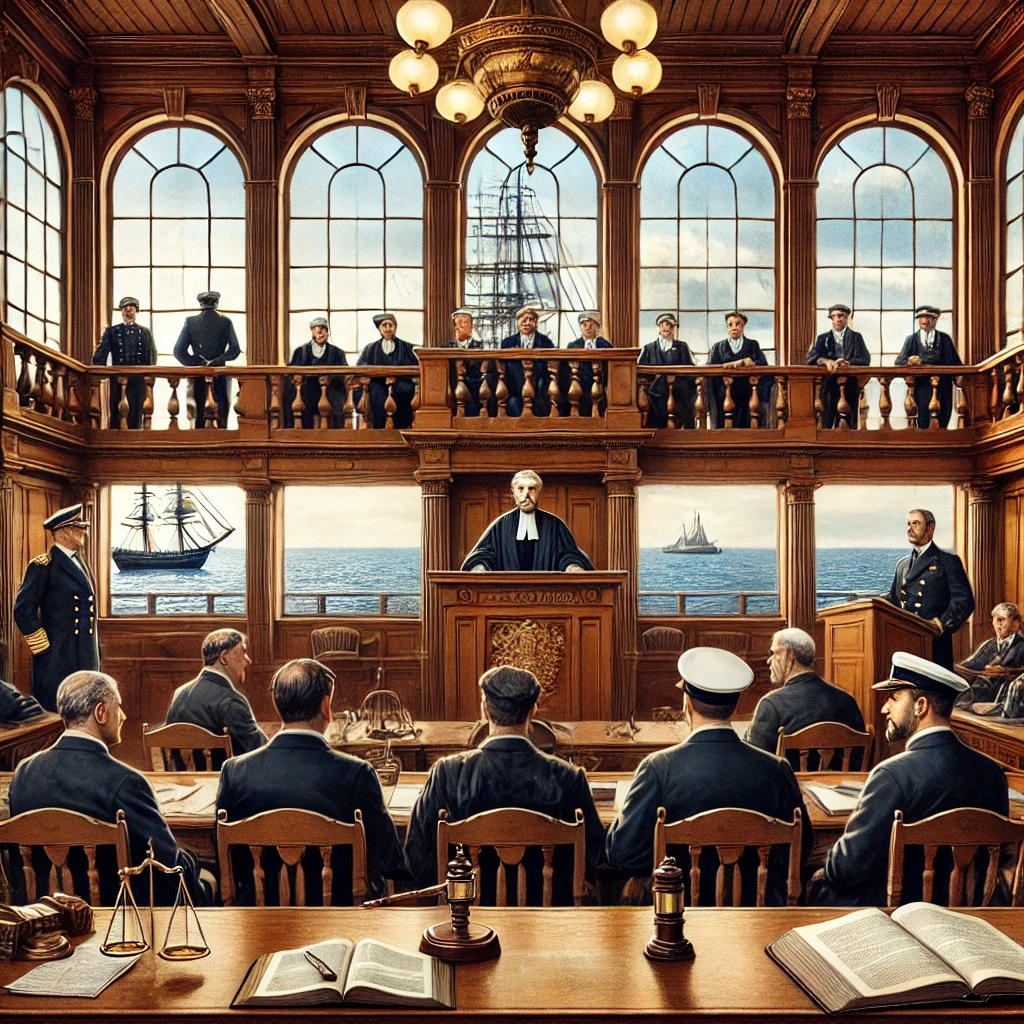Maritime Admiralty Law is one of the most misunderstood legal frameworks in existence. It governs the seas, but its reach extends far beyond ocean-bound vessels. Many believe its principles shape international commerce, financial systems, and even aspects of everyday life. To understand its impact, we must dive into its origins, principles, and modern-day implications.
The Origins of Maritime Admiralty Law
Maritime law dates back to ancient civilizations, where trade across waterways required standardized rules. The Egyptians, Phoenicians, and Greeks all had early forms of maritime regulations. By the Middle Ages, the “Law of the Sea” was codified to regulate trade, resolve disputes, and ensure fair dealings. The British later expanded and formalized these laws, shaping what we now recognize as Maritime Admiralty Law.
The Core Principles of Admiralty Law
At its core, Admiralty Law governs all commercial activities on navigable waters. It covers everything from shipping contracts to salvage rights and liability for maritime accidents. The law ensures that trade operates smoothly and that disputes are settled fairly. Since international trade depends on oceanic routes, Admiralty Law plays a crucial role in the global economy.
Jurisdiction and the Concept of “The Sea”
One of the unique aspects of Admiralty Law is its jurisdiction. Unlike traditional laws that apply within national borders, Admiralty Law operates in international waters. Even when applied on land, it follows principles distinct from common law or civil law. This leads to complex legal scenarios where businesses and individuals may be subject to maritime rules without realizing it.
The Influence of Admiralty Law on Commerce
Banks, corporations, and global financial systems often incorporate Admiralty principles. The law of contracts, negotiable instruments, and liability often draw from maritime concepts. Some argue that modern financial regulations are rooted in the same legal framework that once governed merchant ships. Understanding this connection can shed light on why certain legal structures exist today.
Admiralty Law and the Concept of “Legal Personhood”
One of the more controversial aspects of Admiralty Law is its role in defining legal personhood. In maritime commerce, vessels themselves are considered legal entities separate from their owners. This principle has influenced how corporations and financial institutions operate. The idea that an entity, like a ship or a corporation, can have rights and responsibilities stems from these maritime doctrines.
Contracts and Maritime Liens
In Admiralty Law, contracts are treated with extreme specificity. Maritime contracts, such as charter parties or bills of lading, come with strict enforcement mechanisms. If a shipowner fails to pay debts, creditors can place a maritime lien on the vessel. These liens allow enforcement across international borders, making them one of the strongest financial claims in law.
Salvage and Wreck Laws
The laws governing salvage operations provide insight into the broader philosophy of Admiralty Law. Salvors who recover a ship or cargo are entitled to compensation under “no cure, no pay” principles. This means that only successful efforts are rewarded, incentivizing recovery without unnecessary costs. These laws still apply today, even in cases involving modern shipwrecks or lost cargo.
The Connection Between Admiralty Law and National Legal Systems
Even though Admiralty Law operates in international waters, it often interacts with national legal systems. Many countries have dedicated admiralty courts to handle maritime disputes. The U.S., for instance, has federal admiralty jurisdiction, meaning maritime cases are heard in federal courts. This intersection between maritime and national law creates a complex but necessary legal structure.
The Role of Flags of Convenience
One of the most controversial aspects of modern Admiralty Law is the practice of “flags of convenience.” Many shipowners register their vessels under foreign flags to avoid strict regulations and higher taxes. Countries like Panama, Liberia, and the Marshall Islands have thriving shipping registries because of this loophole. While it benefits businesses, it raises concerns about labor rights, environmental protections, and accountability.
Piracy and Maritime Security
Maritime law also governs piracy, a threat that persists to this day. Modern piracy laws allow for international cooperation in combating hijackings and illegal activities at sea. The United Nations Convention on the Law of the Sea (UNCLOS) provides guidelines for nations to prosecute pirates. While piracy is less common than in historical times, the legal framework remains critical for global security.
The Impact of Maritime Law on Everyday Life
Most people never think about Admiralty Law, yet it affects them daily. Goods shipped internationally are subject to maritime regulations, influencing everything from prices to supply chain stability. Even insurance policies and liability laws in other industries borrow from maritime legal principles. Understanding these connections helps demystify the role of Admiralty Law in modern society.
Maritime Law and Environmental Regulations
As environmental concerns grow, Admiralty Law has adapted to address pollution and marine conservation. International agreements, such as the MARPOL Convention, regulate ship emissions and waste disposal. Oil spills, like the Deepwater Horizon disaster, fall under Admiralty jurisdiction, with legal frameworks determining liability and compensation. These regulations aim to balance economic interests with environmental protection.
The Future of Maritime Admiralty Law
With globalization, digital trade, and evolving regulations, Admiralty Law will continue to change. Issues like autonomous shipping, cyber threats, and sustainability will shape new maritime policies. International cooperation will be crucial to maintaining fairness and security in global trade. The future of Admiralty Law lies in its ability to adapt while upholding its foundational principles.
Conclusion
Maritime Admiralty Law is far more than a niche legal system for sailors and shipowners. It governs global trade, financial structures, and even fundamental legal concepts. Its influence extends from international commerce to national legal systems and environmental regulations. Understanding this hidden legal framework is essential for anyone interested in law, economics, or global affairs.




